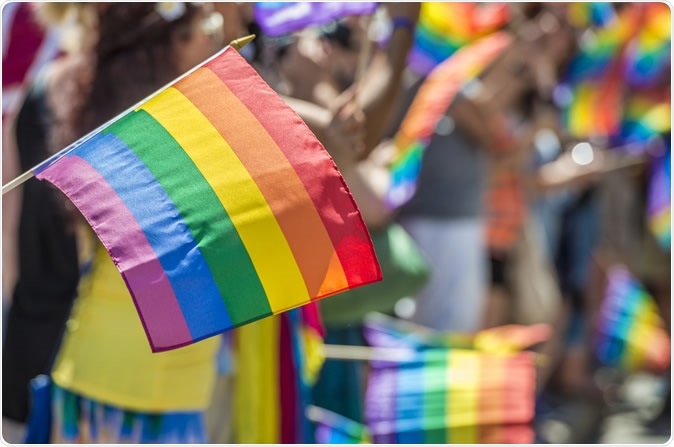The study, which was published in the International Journal of Environmental Research and Public Health, is part of a new effort to pave the way to better understand the mental health of the LGBTQ (Lesbian, Gay, Bisexual, Transgender, and Queer) community.

Image Credit: Marc Bruxelle / Shutterstock
The study method
The researchers administered questionnaires to 367 gay men in China. They conducted some of the surveys face-to-face, but most were given online. Particularly, they shared the link to the online survey with live-chat applications, which were designed and established for gay men in the country.
The questions in the survey include questions to measure loneliness and whether the respondents experienced anxiety, depression and other psychological problems. Also, the questions want to explore the experiences of gay men in terms of social pressure and discrimination.
Young adult gay men prone to loneliness
In the study, the findings show that young adult gay men, ages 25 to 29 years old, are more likely to feel lonely than those who are 20 years old and younger. They feel criticized and rejected.
The reason behind this finding is that gay men in this age group tend to be out of college and are working in various industries. They may face social discrimination and great pressure.
"There is great pressure from society and family that may be imposed on Chinese gay men. We found that these men feel criticized and rejected and that these feelings are linked with loneliness,” Thomas Lee, Assistant Professor in the Office of Public Health Studies at the Myron B. Thompson School of Social Work, said in a statement.
Other findings of the study revealed that gay men aged 25 to 29 years old have higher positive interpersonal sensitivity. This could have been because this age group is already working, and they experience continuous discrimination, violence, and rejection. They may fear to disclose their sexual orientation.
Only child gay men may also experience more pressure as they are afraid that disclosing their sexual orientation may lead to prejudice from their family. Worse, family rejection may occur which may lead to a high risk of substance abuse and suicide.
The team recommends that the government should encourage everyone, especially family members, to provide support to Chinese gay men. The social environment should be more open and accepting, regardless of sexual orientation. This will prevent loneliness and other mental health issues among gay men in the country.
What previous studies say?
Previous studies have suggested that chronic loneliness may lead to changes in the nervous, immune, and cardiovascular systems of people. Moreover, loneliness could be manifested through external behaviors, including alcohol abuse, suicidal behavior, and aggressive behavior.
Previous research about gay men has been conducted in developed countries. These include studies about bisexuals and lesbians, same-sex groups and relationships, social support, sexual health, and sexual behavior. However, over the past years, the focus of studies has been diverted to understanding mental health of the LGBTQ community.
In China, however, it’s also important to determine factors related to homosexuals, particularly gay men. Traditional Chinese culture emphasizes on family inheritance and reproduction. They face misunderstanding and prejudice.
“Gay is still a sensitive topic in China, and many Chinese, especially the elderly, look down upon gay men because of the deep-rooted traditional morals that overemphasize fertility and patriarchy, causing mental health issues in Chinese gay men,” the study researchers said.
“The current research attempts to build a bridge between natural science and social science by providing a baseline understanding of mental health issues in Chinese gay men,” they added.
Journal reference:
Dongdong Jiang, Yitan Hou, Xiangfan Chen, Rui Wang, Chang Fu, Baojing Li, Lei Jin, Thomas Lee and Xiaojun Liu, Interpersonal Sensitivity and Loneliness among Chinese Gay Men: A Cross-Sectional Survey, Int. J. Environ. Res. Public Health 2019, 16(11), 2039; https://doi.org/10.3390/ijerph16112039, https://www.mdpi.com/1660-4601/16/11/2039/htm